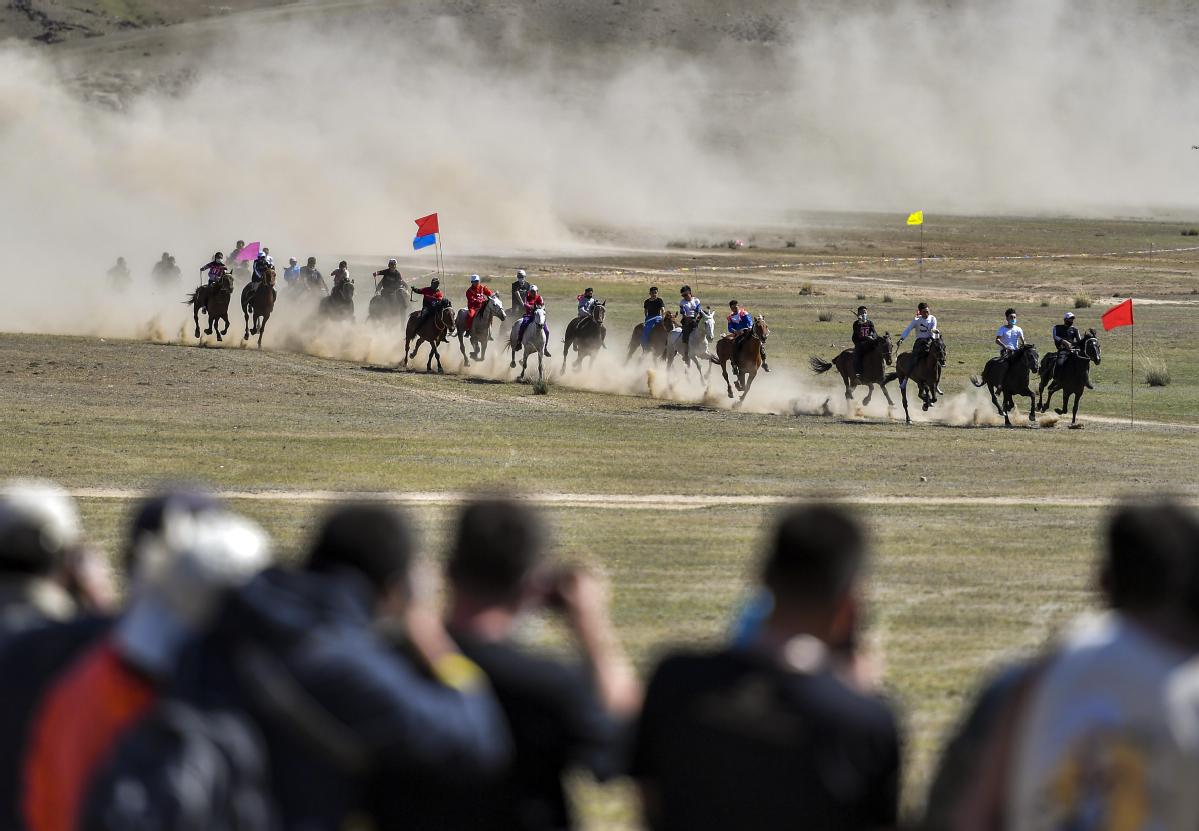Horse industry gallops ahead in Xinjiang with fresh ideas

Kazak herders join in a horse race during a folk festival in Fuhai county, Xinjiang, on May 31, 2020. [Photo/China News Service]
Hormone therapy
For ethnic Kazak herdsmen living on the steppes of Ili, collecting pregnant mare urine from their herds has become a new income source.
Xu Zhiyong, general manager of Xinjiang Nuziline Bio-pharmaceutical, which focuses on PMU drugs, said the urine is processed for estrogen that can be used in hormone replacement therapy for women experiencing menopause.
"One kilogram of PMU can sell for 4.3 yuan to 7.8 yuan," said Erbolsun Abdukhan, a Kazak herdsman living in Ili's Xinyuan county.
"I earned over 20,000 yuan from December to March, the prime season for collecting PMU."
In the past, animal welfare activists in North America criticized the way pregnant mare's urine was collected as the horses were kept in confined spaces for lengthy periods. However, Xu said his company had addressed the issue.
"Our company collects PMU from about 400 local households, half of them poor families, and we have strict management rules and a fixed daily collection quota to ensure that the PMU is collected in a humane way," he said.
Xinjiang produces more than 5,000 metric tons of PMU a year, which is about a quarter of the world's total production.
"The PMU production line in Xinjiang is the first in China, and it helped the country to break the overseas monopoly of PMU," Yao, from the Horse Industry Research Institute, said.
Tourism boost
Riding a horse in the mountains is always a tempting experience for visitors to Xinjiang, and more local herdsmen are willing to rent their own horses and benefit from the booming growth in tourism.
"Two hours on horseback means a net income of some 160 yuan," said Serik Khulabek, a member of a horse-riding tourism service team in Ili. "During peak season, I can take three tourists for a horse ride every day. The horse is more like a cash cow now."
Yao said this was yet another way for herdsmen to generate income, and the Xinjiang horse industry has great potential. "I believe with a modern, integrated and sustainable horse industry in the future, society and individuals in Xinjiang will benefit a lot," he said.








